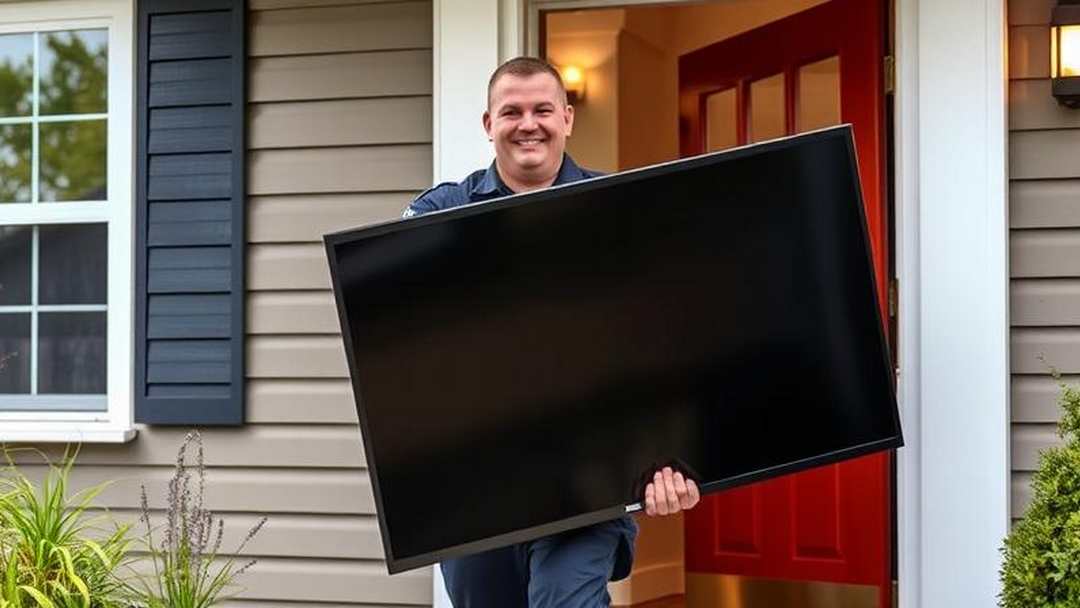No Results Found
The page you requested could not be found. Try refining your search, or use the navigation above to locate the post.

In Michigan, being caught with illegal drugs can lead to serious consequences. The state has strict laws on drug possession, and unlawful possession of a controlled substance is one of the most common charges.
Here, we’ll break down what the law says, the punishments, and possible defenses.
#1 Step to take – Invoke your 5th amendment right and ask for a lawyer. No matter what the police say or what they promise you!!
Under Michigan law, possession of a controlled substance means having drugs or narcotics that are illegal without a valid prescription. These substances can include illegal street drugs like heroin, meth, cocaine, or even prescription drugs like Oxycodone or Xanax if you don’t have a prescription.
Michigan categorizes controlled substances into different “schedules” based on how dangerous or addictive they are. The more dangerous the drug, the harsher the penalties. For example, Schedule I drugs, like heroin, are seen as highly addictive and have no accepted medical use, while Schedule II drugs, like certain pain medications, can be prescribed by a doctor but still carry serious penalties if abused.
The law governing unlawful possession of controlled substances can be found in MCL 333.7403. This section outlines which substances are illegal and what happens if you’re found in possession of them.
The punishment for possessing a controlled substance depends on several factors:
What drug you had, how much you had, and your prior criminal record.
For Schedule III or IV drugs (like prescription medications without a prescription), you may face up to 2 years in prison and/or fines up to $2,000.
You can find the penalties for different types of drugs under MCL 333.7401.
If you have been accused or charged with a crime.
Say nothing to anyone. Talk to us first.
Our firm is experienced in both State and Federal courts defending clients.
CALL NOW
If you’re charged with unlawful possession, there are legal defenses that could help your case. Some of the most common include:
If you’ve been charged with unlawful possession of a controlled substance, it’s crucial to have an experienced legal team by your side. Komorn Law has over 30 years of experience defending clients in both state and federal courts. They specialize in complex criminal defense cases and have a deep understanding of Michigan drug laws.
Komorn Law can help you:
Their expertise in drug cases, coupled with their knowledge of search and seizure laws, can make all the difference in getting charges dismissed or reduced.
If you’re facing charges for unlawful possession of a controlled substance in Michigan, call Komorn Law (248) 357-2550 for a free evaluation today.
Note: This article provides a general overview and does not substitute for legal advice. Anyone charged with a crime should consult an attorney for specific legal guidance.
The page you requested could not be found. Try refining your search, or use the navigation above to locate the post.

Divorce can be a challenging process, especially when there are significant disagreements over property and accusations flying between the parties.
In Michigan, even childless divorces can involve lengthy disputes, particularly when it comes to dividing assets and addressing claims of misconduct.
In Michigan, the division of property during a divorce follows the principle of equitable distribution.
This means that property will be divided “fairly”, though not necessarily equally.
The court will consider factors such as the length of the marriage, contributions of both spouses, and any financial or non-financial misconduct.
Equitable distribution aims to create a fair division of assets based on the circumstances of each case, rather than dividing everything down the middle.
Factors that may be considered include:
Most U.S. states use equitable distribution rules when a couple divorces and can’t reach a marital settlement agreement on their own.
Remember that whe you vote.
According to MCL 552.19, the court has authority to divide marital property, which includes any assets acquired during the marriage, regardless of whose name is on the title.
Marital property can include homes, cars, retirement accounts, investments, and other financial assets.
However, there is often a dispute over what constitutes “marital” versus “separate” property.
Separate property, like assets owned before the marriage or gifts and inheritances, may not be subject to division. But that does not mean you don’t have to fight for them.
Disagreements often arise when one spouse believes they contributed more to acquiring or maintaining certain assets, while the other might argue that they deserve a larger share for non-financial reasons.
For instance, one spouse might feel entitled to a bigger portion of the marital home, especially if they believe they took care of household duties while the other spouse worked.
These disagreements can become intense, and without children to consider, disputes over property tend to take center stage.
Another common issue in divorce proceedings is the use of false accusations. While Michigan is a no-fault divorce state under MCL 552.6, meaning a couple does not need to prove wrongdoing to get a divorce, accusations of fault can still arise.
One spouse may falsely accuse the other of infidelity, financial mismanagement, or even abuse in an attempt to gain leverage during property division.
Although these claims are often unrelated to the legal grounds for divorce, they can influence how a judge views the credibility of each spouse and affect the final outcome.
For example, if one spouse accuses the other of hiding assets or lying about their finances, the court might order a thorough investigation. These accusations can delay the process, increase legal costs, and create further tension between the parties. Worse, false accusations can damage reputations and even lead to criminal investigations, especially if the claims involve violence or fraud.
Navigating a divorce with property disputes and false accusations requires experienced legal guidance.
Komorn Law specializes in taking on difficult divorce cases, particularly when false accusations and complex asset division are involved.
From gathering evidence, debunking false claims, and presentig a clear case to protect your rights and assets.
Komorn Law can help ensure that property is divided equitably and that false accusations do not unfairly influence the court’s decision.
They understand the emotional and financial toll of a contentious divorce and are dedicated to achieving the best possible outcome for their clients.
Divorce without children may appear straightforward at first glance, yet conflicts over assets and unfounded allegations can complicate the situation significantly. Michigan’s divorce laws offer a structure for addressing these challenges, but the distinct nature of each case underscores the necessity for skilled legal guidance.
At Komorn Law, we are committed to confronting these challenges with determination, advocating fiercely to safeguard your rights and secure the most favorable outcome for you. When navigating the complexities of a difficult divorce, having a knowledgeable attorney by your side can significantly influence the results of your case.
Note: This article provides a general overview and does not substitute for legal advice. Anyone charged with a CSC offense should consult an attorney for specific legal guidance.
The page you requested could not be found. Try refining your search, or use the navigation above to locate the post.

Passengers in a vehicle are afforded Fourth Amendment protections against unreasonable searches and seizures, though the scope of these rights varies based on the specific circumstances surrounding the stop and search.
The Fourth Amendment protects all individuals, including passengers, from unlawful government intrusions.
However, the scope of this protection can vary, especially in the context of vehicle stops and searches.
The U.S. Supreme Court has clarified the rights of passengers in several key cases. In Brendlin v. California (2007), the Court ruled that passengers, like drivers, are “seized” during a traffic stop and therefore have the right to challenge the legality of the stop. This means that if the stop is found to be unlawful, any evidence obtained as a result may be suppressed, even if it was found on a passenger.
However, the right to challenge the stop does not necessarily extend to a right to challenge the search of the vehicle. In Rakas v. Illinois (1978), the Supreme Court held that passengers do not have a legitimate expectation of privacy in a vehicle they do not own or control. Therefore, while a passenger can challenge the stop itself, they cannot generally challenge the search of the vehicle unless they have a personal privacy interest in the area searched, such as in their personal belongings.
Under Michigan law, as per the Michigan Compiled Laws (MCL), the rights of passengers align with federal standards. For instance, MCL 257.742 outlines the procedure for stopping vehicles and the obligations of drivers and passengers during traffic stops. While the law primarily addresses the driver’s responsibilities, passengers are also protected under the broader umbrella of the Fourth Amendment.
However, Michigan courts, following federal precedent, generally hold that passengers cannot challenge the search of a vehicle unless they can demonstrate a personal privacy interest in the area searched. For example, if a passenger’s personal bag or purse is searched, they may have standing to challenge that search.
If a driver consents to a search, that consent typically extends to the entire vehicle, including areas where passengers’ belongings may be stored. However, the scope of the consented search must be reasonable. Similarly, under the plain view doctrine, if an officer lawfully stops a vehicle and observes illegal items in plain view, those items can be seized without violating Fourth Amendment rights, regardless of whether they belong to the driver or a passenger.
Passengers in a vehicle do have Fourth Amendment rights, particularly concerning the legality of the traffic stop. However, their ability to challenge the search of the vehicle is limited unless they can show a personal privacy interest in the area searched. The balance between individual rights and law enforcement authority continues to be shaped by court rulings, both at the federal and state levels. Understanding these nuances is essential for recognizing the protections afforded to passengers under the Fourth Amendment.
Legal Counsel and Your Rights
When facing legal challenges, particularly in criminal cases, it is advisable to seek legal counsel immediately.
An experienced attorney can provide guidance on how to navigate interactions with law enforcement while safeguarding your constitutional rights.
Since 1993 our expert legal defense in navigating criminal law matters and protecting your constitutional rights are what we eat for breakfast everyday.
Contact Komorn Law PLLC if you’re ready to fight and win.
Research us and then call us.
Below is some information that can help to make a traffic stop less stressful and safer for everyone.
If you feel the officer acted inappropriately or didn’t treat you fairly, it’s okay to follow up with a phone call to his or her supervisor.
Source: Michigan Government

Can the police sieze your belongings and hold it without charging you with a crime?Forfeiture laws in Michigan allow the government to seize property – like cash, cars, or even houses – if they believe it was involved in a crime. This can happen even if the owner...
Defense against false accusations of Criminal Sexual Conduct (CSC) in MichiganDefending against a false accusation of Criminal Sexual Conduct (CSC) in Michigan is a serious matter and requires a well-prepared legal strategy. Here are several steps you should take to...
Other Articles
The page you requested could not be found. Try refining your search, or use the navigation above to locate the post.

Defending against resisting and obstruction arrest in Michigan is a serious matter and requires a well-prepared legal strategy.
These are bonus charges you get if you don’t comply like a limp biscuit. They will stay on your record and everytime you have a police encouter it will be at a heightened level putting you at risk.
The first and most important step is to immediately seek the help of an experienced criminal defense attorney.
A lawyer who specializes in resisting and obstructing cases will know how to navigate the complexities of the legal system, protect your rights, and build a strong defense.
They will also help you avoid making mistakes that could hurt your case.
In Michigan, the law deals with obstruction and resisting arrest through a range of actions that can interfere with a law enforcement officer’s duties. These actions are illegal and are taken seriously by the courts. Michigan law outlines several levels of offenses for obstruction and resisting arrest, depending on the severity of the act and the resulting consequences.
Michigan law, specifically Michigan Compiled Law (MCL) 750.81d, makes it a crime to obstruct, resist, or assault a police officer while they are carrying out their duties.
This law applies not only to police officers but also to firefighters, emergency medical personnel, and other authorized officials.
Resisting involves refusing to comply with lawful orders, such as resisting an arrest.
Obstruction, on the other hand, refers to actions that make it difficult or impossible for an officer to perform their duties, like lying to police, refusing to move when asked, or hiding evidence.
If you are found guilty of resisting or obstructing, you can face a felony charge. The penalties for this crime depend on the circumstances:
There is a distinction between passive resistance and active resistance. Passive resistance is often seen in peaceful protests, where someone might sit or stand in a location without fighting back. While still illegal, passive resistance typically results in lower penalties than active resistance, which involves physical struggle or fleeing from an officer.
Obstructing justice is broader than just resisting arrest. According to MCL 750.478a, this charge can include things like:
These actions are considered felonies, and penalties can be severe depending on the level of obstruction.
Legal Counsel and Your Rights
When facing legal challenges, particularly in criminal cases, it is advisable to seek legal counsel immediately.
An experienced attorney can provide guidance on how to navigate interactions with law enforcement while safeguarding your constitutional rights.
Since 1993 our expert legal defense in navigating criminal law matters and protecting your constitutional rights are what we eat for breakfast everyday.
Contact Komorn Law PLLC if you’re ready to fight and win.
Research us and then call us.
If someone is charged with resisting or obstructing an officer, they may have some legal defenses available. These can include:
Resisting arrest and obstructing officers in Michigan whether the resistance is passive or active, it is important to understand that interfering with law enforcement can lead to felony charges and significant penalties.
For more details, you can refer to the Michigan Compiled Laws:
Understanding these laws can help prevent situations that might lead to arrest or additional charges.

Can the police sieze your belongings and hold it without charging you with a crime?Forfeiture laws in Michigan allow the government to seize property – like cash, cars, or even houses – if they believe it was involved in a crime. This can happen even if the owner...
Defense against false accusations of Criminal Sexual Conduct (CSC) in MichiganDefending against a false accusation of Criminal Sexual Conduct (CSC) in Michigan is a serious matter and requires a well-prepared legal strategy. Here are several steps you should take to...
Other Articles
The page you requested could not be found. Try refining your search, or use the navigation above to locate the post.

In Michigan, obstruction is a crime that involves interfering with law enforcement or other officials when they are trying to carry out their duties.
Obstruction can cover a wide range of actions, including lying to the police, physically interfering with an officer’s job, or helping someone else avoid arrest. Michigan law takes obstruction seriously, and it can lead to felony charges with significant penalties.
Under Michigan Compiled Law (MCL) 750.81d, obstruction is defined as any action that resists, opposes, or interferes with a police officer, firefighter, paramedic, or other emergency responder while they are performing their duties. This can include:
The key part of the law is that obstruction makes it harder for officials to do their jobs safely and effectively. Even if you don’t touch the officer, simply not following orders or making their job more difficult can still be considered obstruction.
750.81d Assaulting, battering, resisting, obstructing, opposing person performing duty; felony; penalty; other violations; consecutive terms; definitions.
Sec. 81d.
(c) “Serious impairment of a body function” means that term as defined in section 58c of the Michigan vehicle code, 1949 PA 300, MCL 257.58c.
Michigan law, specifically Michigan Compiled Law (MCL) 750.81d, makes it a crime to obstruct, resist, or assault a police officer while they are carrying out their duties.
This law applies not only to police officers but also to firefighters, emergency medical personnel, and other authorized officials.
Resisting involves refusing to comply with lawful orders, such as resisting an arrest.
Obstruction, on the other hand, refers to actions that make it difficult or impossible for an officer to perform their duties, like lying to police, refusing to move when asked, or hiding evidence.
If you are found guilty of resisting or obstructing, you can face a felony charge. The penalties for this crime depend on the circumstances:
There is a distinction between passive resistance and active resistance. Passive resistance is often seen in peaceful protests, where someone might sit or stand in a location without fighting back. While still illegal, passive resistance typically results in lower penalties than active resistance, which involves physical struggle or fleeing from an officer.
Michigan law also has a catch all law MCL 750.505.
750.505 Punishment for indictable common law offenses.
Sec. 505.
Resisting arrest and obstructing officers in Michigan whether the resistance is passive or active, it is important to understand that interfering with law enforcement can lead to felony charges and significant penalties.
For more details, you can refer to the laws here:
The page you requested could not be found. Try refining your search, or use the navigation above to locate the post.
The page you requested could not be found. Try refining your search, or use the navigation above to locate the post.

Can the police sieze your belongings and hold it without charging you with a crime?Forfeiture laws in Michigan allow the government to seize property – like cash, cars, or even houses – if they believe it was involved in a crime. This can happen even if the owner...
Defense against false accusations of Criminal Sexual Conduct (CSC) in MichiganDefending against a false accusation of Criminal Sexual Conduct (CSC) in Michigan is a serious matter and requires a well-prepared legal strategy. Here are several steps you should take to...
Other Articles
Michigan Court of Appeals - PEOPLE v. JAMES THOMAS MASON, JR.Jail vs ProbationIn People v. James Thomas Mason, Jr., the Michigan Court of Appeals dealt with whether the district court could reasonably depart from the usual “no jail, no probation” presumption for a...
Someone asked us... Can I be arrested for flying a drone?As we have seen ... They can charge you and arrest you for whatever they want. But Can I Be Arrested or Fined for Flying a Drone? Yes, you can be arrested or fined for breaking Michigan’s drone laws. Under MCL...
You work hard. Now get ready to work harder to prepare to give more.If you own or are a member of an LLC.You have a deadline of January 1, 2025Call us we can take care of it for you. 248-357-2550The new Beneficial Ownership Reporting requirements for LLCs and other...
Understanding Compounding Charges Laws in Michigan Compounding charges refer to the illegal act of accepting or agreeing to accept a benefit in exchange for not prosecuting a crime. In Michigan, this is considered a serious offense, and the law specifically prohibits...